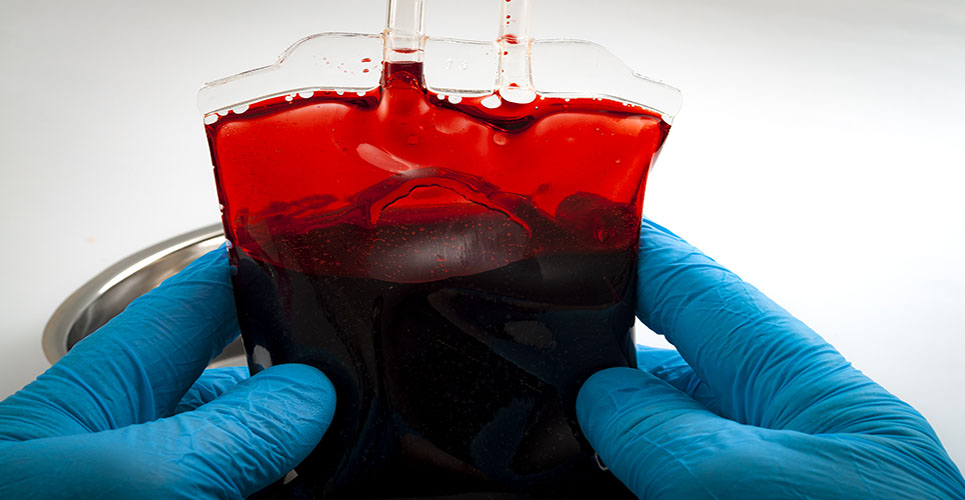Newly published clinical data demonstrate that people on extended-interval prophylaxis regimens with Eloctate®/Elocta® (rFVIIIFc) [Antihemophilic Factor (Recombinant), Fc Fusion Protein] experienced low bleeding rates, Biogen and Swedish Orphan Biovitrum AB announced. The interim results of this phase III, open-label extension study called ASPIRE were published in the online edition of Haemophilia, the journal of the World Federation of Haemophilia, the European Association for Haemophilia and Allied Disorders, and the Haemostasis & Thrombosis Research Society.
Study participants completing the Phase III A-LONG and Kids A-LONG studies were eligible to participate in ASPIRE. The results to-date show the majority of participants in ASPIRE maintained or extended their dosing intervals between treatments compared to the A-LONG and Kids A-LONG studies. As of the interim analysis, the median time in the ASPIRE study was 80.9 weeks for adults and adolescents completing the A-LONG study, and 23.9 weeks for children completing the Kids A-LONG study. Inhibitor development is the primary endpoint of ASPIRE and no inhibitors were reported in any treatment groups. Through the interim ASPIRE analysis, adults and adolescents experienced annualised bleeding rates (ABRs) of 0.66, 2.03 and 1.97 in the individualised, weekly and modified prophylaxis arms, respectively. Children on individualised prophylaxis also experienced low bleeding rates, with an overall median ABR of 0.0 in children less than six years of age, and 1.54 for children ages 6 to 12. These results were consistent with data from the Phase III A-LONG and Kids A-LONG studies.
In addition to efficacy and safety endpoints, the publication also reports changes in prophylactic injection frequency from the end of the A-LONG study through the interim analysis. Of the adults and adolescents who had previously been treated prophylactically and who remained in the study through the interim analysis (n=128), 72% maintained their prophylactic dosing interval and 22% lengthened and 6% shortened the time between injections. Extension study participants could change treatment group at any time.
“The design of the ASPIRE study provides physicians a high degree of dosing flexibility, with the goal of reflecting their real-world treatment practices,” said Guy Young, MD, Director of the Hemostasis and Thrombosis Center, Children’s Hospital of Los Angeles. “The results suggest prophylaxis with Eloctate/Elocta shows efficacy and safety for the long-term treatment of haemophilia A.”
In ASPIRE, most participants received prophylactic treatment and were able to maintain protection against bleeding episodes with Eloctate/Elocta consumption that was consistent with that observed in A-LONG and Kids A-LONG.
Growing body of evidence further validates Eloctate/Elocta clinical profile
The publication reported cumulative duration of treatment from the beginning of the A-LONG and Kids A-LONG studies through the ASPIRE interim data analysis. The median cumulative duration of treatment was 117.7 weeks for adults and adolescents, and 51.5 weeks for children less than 12 years old.
Across age groups, safety results were consistent with the general haemophilia A population. There were no reports of serious allergic reactions or vascular clots. The most common adverse events (incidence of greater than or equal to five percent) included nasopharyngitis (common cold), arthralgia (joint pain) and upper respiratory infection.
“These published results add to the body of data demonstrating Eloctate’s/Elocta’s safety profile and ability to provide protection against bleeding episodes,” said Wing-Yen Wong, MD, vice president, Global Medical, Hematology and Immunology at Biogen. “As a company focused on bringing treatment advances to the haemophilia community, we are committed to gathering comprehensive, long-term clinical data across populations.”
“We remain focused on the goal of elevating haemophilia care globally, and we believe the publication of these data is important clinical research that contributes to the advancement of medical science in haemophilia,” said Birgitte Volck, MD, PhD, senior vice president and chief medical officer of Sobi. “These interim extension data help affirm the known efficacy and safety of Eloctate/Elocta for the treatment of people with haemophilia A.“

